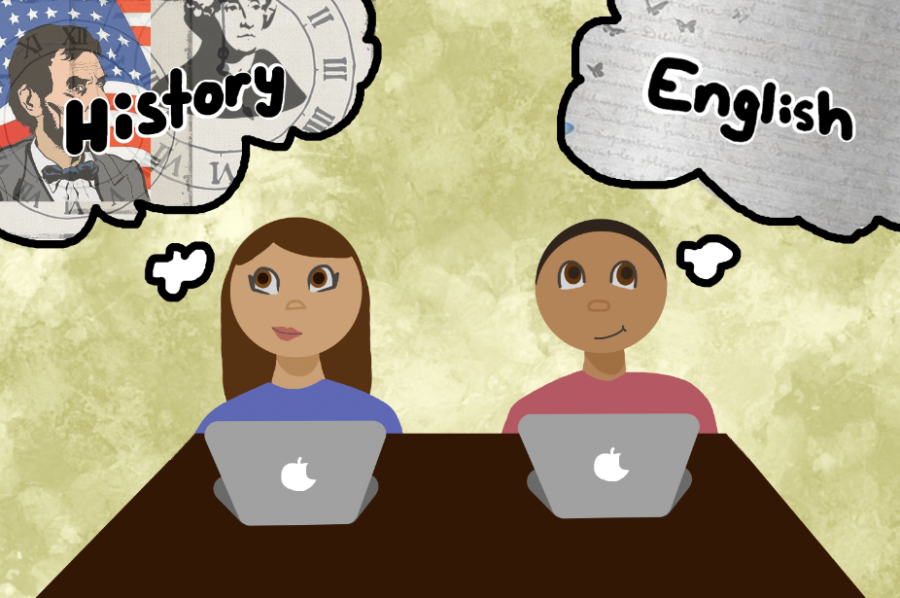OPINION: English writing differs significantly from historical writing
Both disciplines require skilled writers; the types of writing are fundamentally different
English majors and historians may have a lot in common, but they differ on their writing styles significantly.
November 4, 2020
English and history are both writing-heavy majors. Majoring in both myself, I find I am rarely faced with an exam but instead always have an essay to write. The way I approach essays for English versus essays for history, however, is not the same.
One key difference I always notice between the two disciplines comes in the form of citations. I love history’s use of Chicago Style footnotes; they are less intrusive than parentheticals. Sorry MLA, you’re kind of ugly.
Shawna Herzog, history instructor with a focus on imperialism, gender, slavery in the Indian Ocean and the British Empire, said the footnotes can provide extra analysis and can act as a pedigree for the essay.
“Historians want a map of where you’ve been intellectually,” Herzog said.
As history loves context and primary sources among other things, Herzog said it can be more of social science than humanity.
She said she thinks English is more forgiving as it tends to be fluid and organic, whereas historians are unwilling to budge without strict evidence and can lose the storytelling aspect in their fervor for accuracy.
English is willing to make the context more fluid by focusing not only on what was, like history does, but also what is and what could be.
“Historians don’t postulate about what might have happened,” Herzog said.
Megan Hall, teaching assistant professor in WSU’s English department, said for English composition classes and history, the biggest difference is that in composition, your focus is the writing process whereas in history the focus is the content.
“What you’re saying about the topic isn’t quite as important to composition teachers as how you’re saying it,” Hall said.
In a composition course, the topic can be anything, including a historical topic. The content of the course focuses on the writing process and helps students to develop voice and style, as well as understand the expectations for different types of essay writing.
In literature courses, Hall said what the student is analyzing will differ, but the mode of analysis is similar.
“There is a lot of overlap,” Hall said. “History and English tend to be pretty interdisciplinary and connected.”
Hall said she thinks the English composition courses lay the groundwork for the work that goes on in history and literature courses. Hall said she often focuses on relevance with her students — what happened and what does it mean — which does connect to history as well.
English also allows individuals to look for personal meaning, depending on the circumstance, whereas with history you want to avoid letting your personal feelings on the matter cloud the analysis. In English, there are various types of writing that allow for emotion and feeling to take the stage.
Both English and history, however, can focus a great deal on minute details. Herzog said there have been articles just debating the personality of historical figures, which make her somewhat wary as it is incredibly hard to truly know about the personality of people in the past. Hall said she spent two graduate seminars analyzing the opening lines of “Swann’s Way” by Marcel Proust.
Hall said history often focuses on an event whereas literature often analyzes a concrete text. Both are impacted by intertextuality, however, as each text builds off another.
With a scholarly article in history, readers can follow the intellectual map left by citations to countless other texts. With English, a text may be inspired by another and the historical and social contexts may strengthen an analysis.
Both English and history may be writing heavy, and while the styles and expectations vary, the two complement one another well. The mark of a great history book is when it sticks to accurate historical facts and provides strong analysis without losing the storytelling aspect.





















